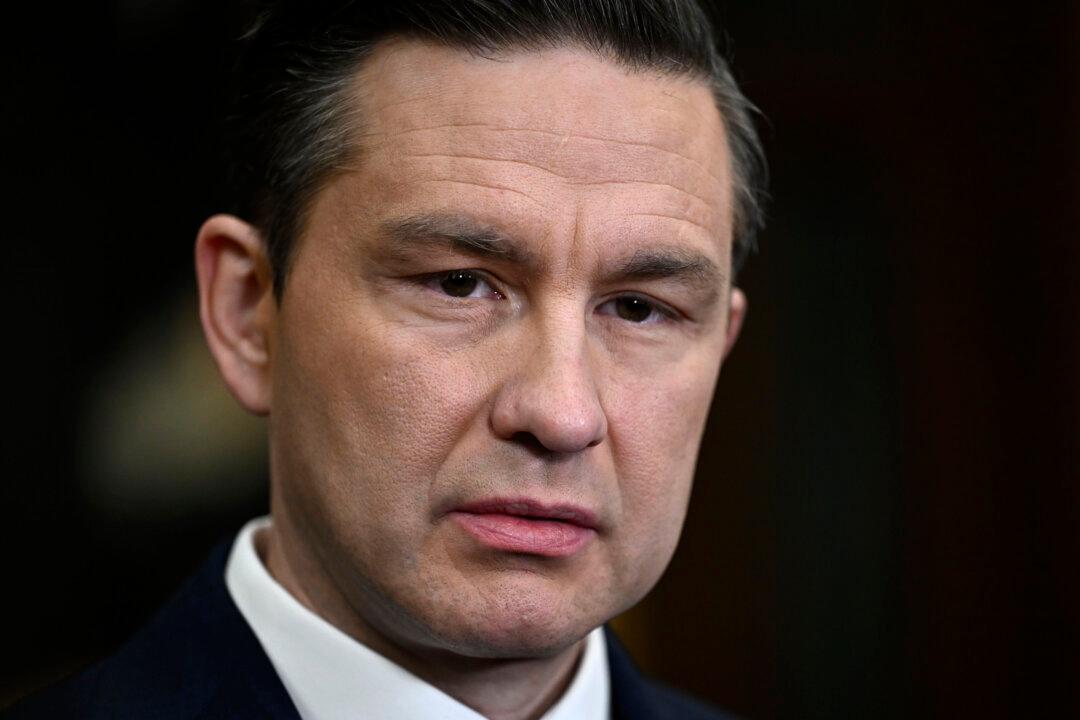Conservative Leader Pierre Poilievre has pledged a “Canada first” approach to foreign policy in response to U.S. President-elect Donald Trump’s threat of steep tariffs on Canadian goods.
“President Trump has the right to put his workers and his nation’s security first. I will put Canada’s workers and Canada’s security first,” Poilievre said during a Nov. 26 press conference in Ottawa.





